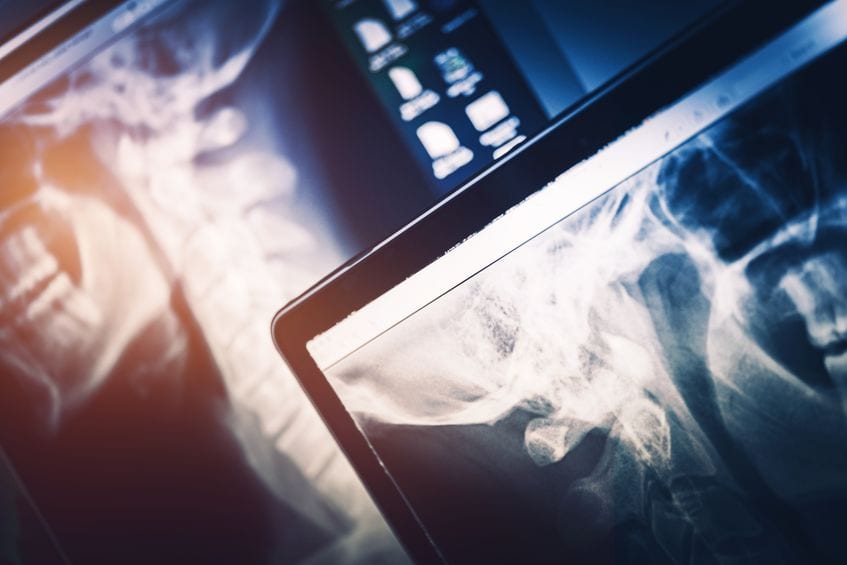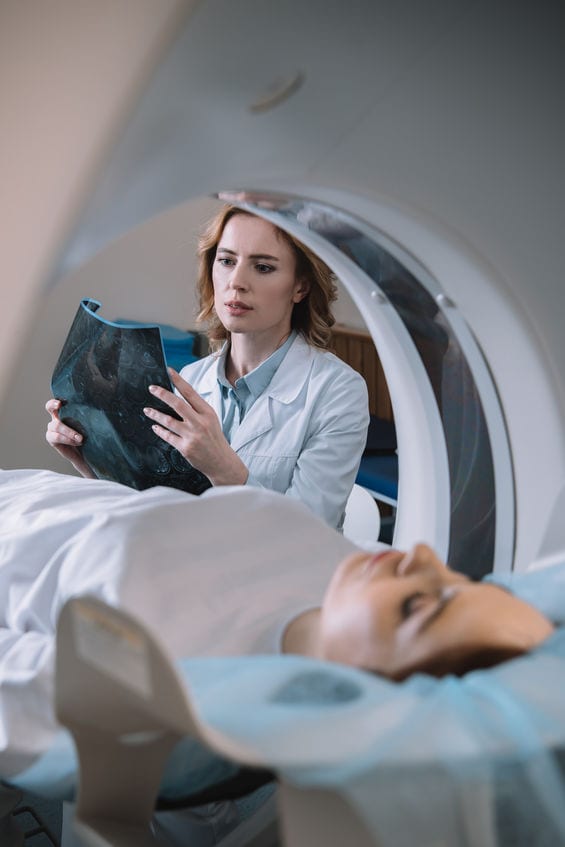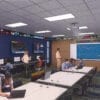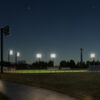Radiology Lab
CHALLENGE:
When the radiology program was added to FMCC’s already successful medical professionals program in 2004, a much needed gap was filled. However, the program lacked key resources like training equipment and a proper lab, relying instead on the generosity of local clinics and hospitals where students could gain partial hands-on experience in the field.
As the years progressed and the program grew, additional needs arose, including modern technology, an expanded curriculum and general funding. The Foundation has supported three significant growth points for the radiology program as well as ongoing financial support for students when needed.

SOLUTION:
To meet the needs of a developing program, in 2008 the Foundation spearheaded a fundraising plan to build and equip a proper laboratory for the radiology students.
The building required a number of engineering specifications, including high-voltage allowances to run imaging machines and lead-lining the walls to contain radiation rays.
Additionally, the Foundation purchased an anthropomorphic phantom — a 180-pound male skeleton with tissue density to match a live human. State law does not allow for live imaging practice, so students rely on the phantom to learn the tactile skills.
Several years later, the Foundation provided funding for an expanded curriculum that allowed students to specialize in mammography.
New York State requires all students to pass board exams in order to be licensed in radiology, and mammography is considered a post-primary modality or specified area of study.
OUTCOME:
“We educate and train traditional and nontraditional students on how to take diagnostic images for radiologists in a two year program, in both didactic and clinical based areas,” says Karlyn LaBate, clinical coordinator and instructor for the Radiologic Technology program, FMCC alum, and 30-year staff veteran at St. Mary’s Hospital Amsterdam.
“We’re the true definition of a community-based program; we produce diagnostic radiographers who are employed at our community hospitals.”
“What the Foundation has done for the radiologic program is huge,” says LaBate.
The program’s students consistently pass their board certifications on the first try, and area hospitals and clinics praise FMCC alums for their job-ready imaging machine experience, which they gained from having an on-campus laboratory.
“The Foundation makes a difference for the students and their educational process. They have supported us in every way and have made it possible for us to do what we do, which is to provide our community with excellent radiographers,” LaBate says. “They really affect students’ success.”
Many of our radiologic students enter the program with personal struggles and grave disadvantages, but they leave the program with a new sense of purpose and the skills and credentials to change their own lives and the lives of their children.
Ongoing financial support from The Foundation in the form of scholarships, assistance with field trips or the purchase of protective wear required for on-site clinical training during the pandemic, among other avenues of support, has helped students who might be left behind, stay ahead.
Thank you to our Generous Donors






 © 2025 The Foundation at FM. Website by
© 2025 The Foundation at FM. Website by